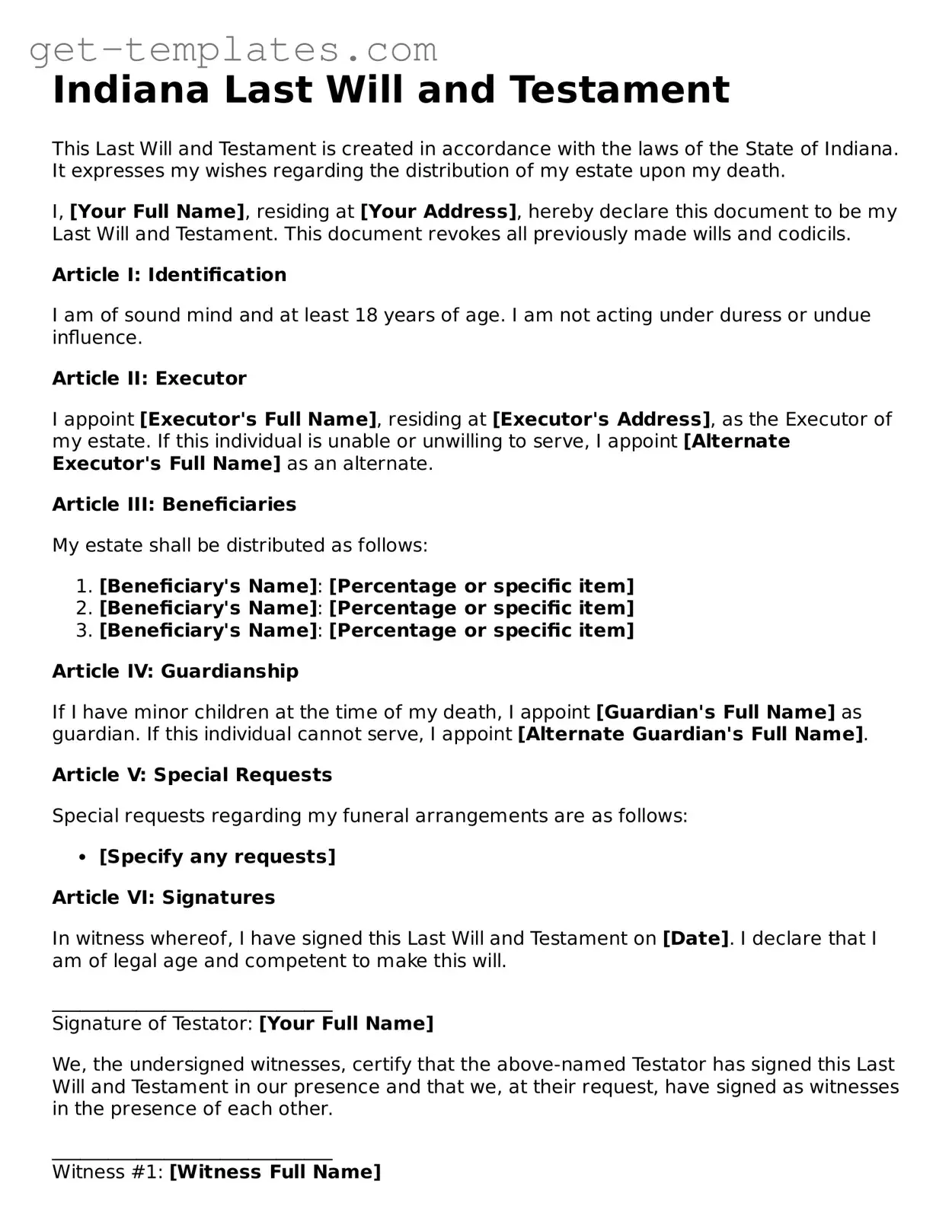Attorney-Approved Last Will and Testament Document for Indiana
The Indiana Last Will and Testament form is a legal document that outlines how a person's assets and affairs will be handled after their death. This form allows individuals to specify their wishes regarding the distribution of property, guardianship of minor children, and other important matters. Understanding this form is crucial for ensuring that one's intentions are honored and that loved ones are taken care of according to their wishes.
Get Document Online

Attorney-Approved Last Will and Testament Document for Indiana
Get Document Online
You’re halfway through — finish the form
Finish Last Will and Testament online — edit, save, download made easy.
Get Document Online
or
⇓ PDF Form
